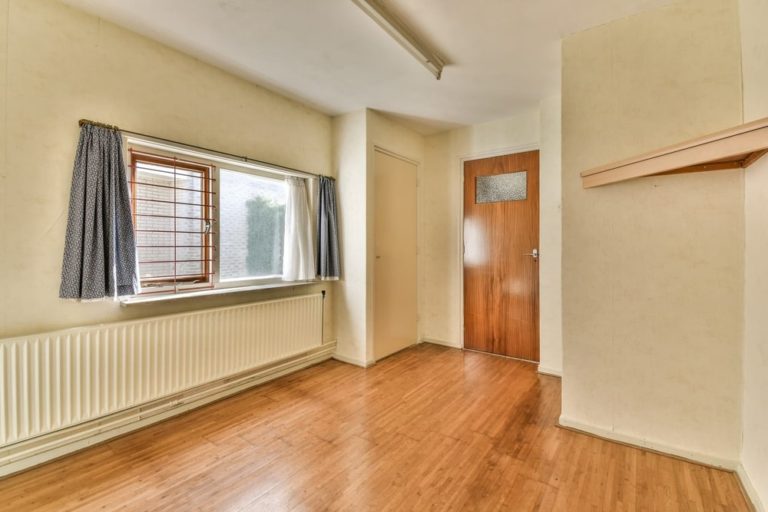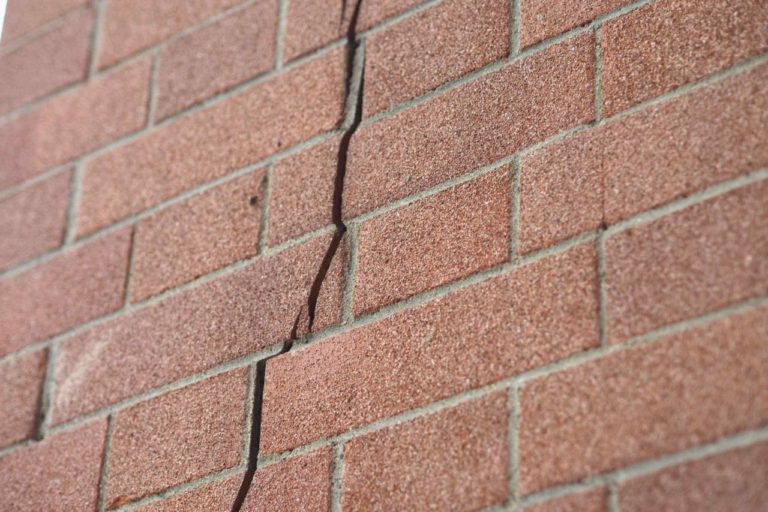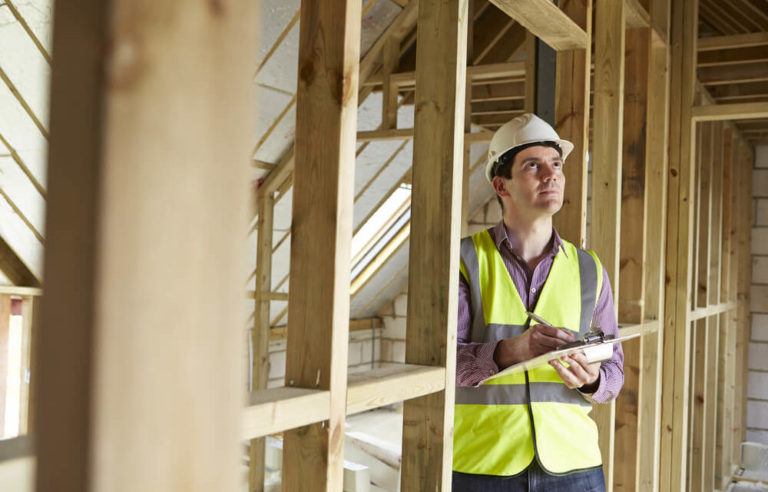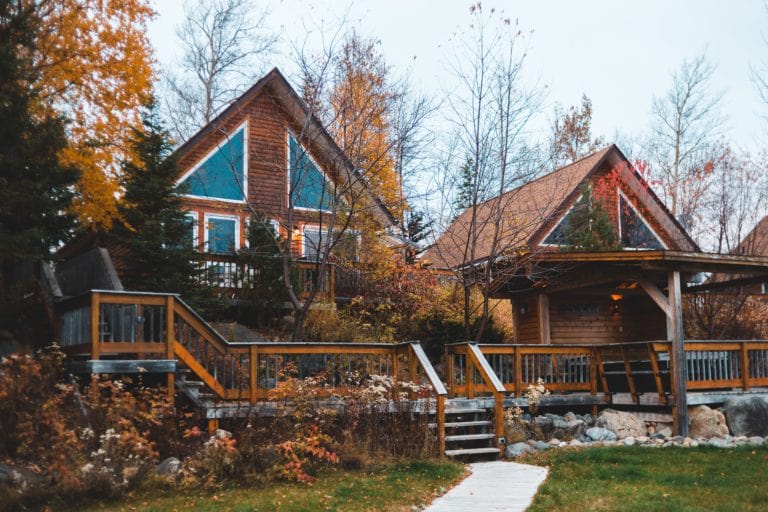1. Conduct research
To begin, it is important to research everything there is to know about renovations. You should know what you need to do and what others need to contribute and understand all steps involved in the entire process. Researching online, visiting contractor websites, scrolling through online forums, consulting professionals, or contacting people with past experiences would be a good start.
2. Create a risk management plan
Creating a risk management plan is a sure way to decrease surprises and increase preparations. First off, you need to write down every potential risk that may occur. This could be a tornado; materials delay, a contractor quitting, going over budget, requiring extra professionals, cutting your finger, and much more. Next, you should write down how to proactively minimize each risk. These can be budgeting extra money, extending timeframes, purchasing a first aid kit, obtaining insurance, etc. Finally, you should note how you would react to these risks. These consist of contacting another contractor, calling 911, stitching up the finger, lowering the budget of the next area, etc.
3. Have a design plan
Walk through your house and plan exactly what you would like to do. It is best to write down the specifics. Every little detail could be important later on. Try and make the plan realistic according to your budget and timeframe. What walls to remove, where to move doors, where to add a wall, what materials you want to use, etc. Be as specific as possible.
4. Create your own drawings
We know you are not architects, but basic drawing designs are not too difficult to create. From an aerial viewpoint, draw out the floor plan of your house (or gather a previously owned floor plan). You should label each room, door, window, closet, & stationery items (stove, light fixture, sink, toilet, bath, etc.). Following this, you should make a copy of the sheet but add all the changes you desire. This will help you explain your needs to the contractors and help them better understand them. Changes shown through visual representations can effectively convey your vision to the experts you hire.
5. Consult the right people
Rather than trusting what is posted online, it is best to contact professionals in the industry to learn about different prices, designs, options, contractors, professionals, materials, essentials, and more. Consulting useful individuals can save you money in the long run. This will help you better understand what and who must complete the project. For example, depending on the situation, general contractors may be better to hire than specialized contractors. In other circumstances, both can be used. Also, it may be best to go with a certified designer to plan out your home for you. The added fee may benefit you down the line as it can help increase the price of your home and maximize its square footage.
6. Hire the right people
After consulting professionals, it is time to hire the correct professionals. First off, do not fixate only on price. The lowest prices often lead to the lowest quality. Focusing on different variables is important as well. This includes availability, experience, recommendations, involvement, size of the company, number of employees, and timeframe. To choose who to hire, it can be helpful to contact all of your potential hires and ask them questions. How much would it cost for a wall removal? How long would it take for a load-bearing wall removal? When could you start? How many employees will be working on the projects? These questions should be compared to one another to help you to make an educated decision on who to hire.
7. You are not a professional
Just a quick reminder. Unless you are a professional, then disregard it. Although you may consider yourself a handyperson, these experts have worked 8+ hours a day in their industry for many years. Can you say the same? It is almost always best to leave it to the professionals. They will do it better and quicker and can save you money in the long run.
8. Obtain an accurate estimate
You should contact different businesses to receive different quotes that you can compare. To continue, it may be better to pay the fee for an inspection. What they may find or recommend can easily save you tons of money. Also, it is best to budget on the high end of an estimate. For example, if you are quoted $800-1000, you should budget $950-1000.
9. Create a budget
Planning the finances is the best way to prepare for a home renovation. Creating a ballpark figure on how much you plan to spend is a great way to start. With your vision of your dream home in mind, reach out to professionals for estimates. Once you get a better idea of how much services, materials and labour will cost, you can begin to prioritize certain aspects of the renovation and look for opportunities to save money in other less essential areas. Creating a realistic budget using Excel spreadsheets, budget sheets, or other similar software will help you plan for the future. Ensure you use accurate estimates from professionals in your area for your budget to prepare yourself better. Once your renovation starts to gear up, make sure to track your actual costs as well. You never know; you may have extra money in your budget.
10. Prepare for extra costs
It’s every homeowner’s nightmare to hear that you must go over budget on your home renovation, but it’s more common than you think. Every renovation can face unexpected challenges. You may come across asbestos or need to remove a load-bearing wall. To save yourself the stress of dealing with these surprises during construction, try to budget anywhere from $1,000 to $5,000 for unexpected additional costs before the renovations begin.
11. Compare multiple providers
When choosing materials and workers, it is essential that you take the time to compare their prices, qualifications, services, specialties, availability, durability, reliability, location, and more to make a solid decision. Creating a spreadsheet with Google Spreadsheets will help you organize the information and easily contrast each qualification. Remember, do not just focus on price.
12. Prepare for the worst
The risk management plan will help you with this point. Following the research into all of the potential risks, it is best to prepare for them. Include the risks in your budget, time, and energy accordingly. Prepare for the worst, and aim for the best. It is difficult to be surprised by something if you know it may occur.
13. Clean and organize regularly
Rather than completing one big clean-up at the end of the operations, you should constantly be cleaning up. Staying on top of cleaning and preparing allows for less stress, quicker processes, and a shorter-end cleanup. Think of the future you; the future you will be appreciative of a cleaner place.
14. Set a reasonable end date
For big projects like this, delays are inevitable. Operations rarely go as planned. Something will come up, whether it be obtaining the correct professionals, finding hidden issues, supply chain problems, exhaustion, poor weather, or a lack of funds. This means it is important to budget a few extra weeks for delays. This lowers stress drastically and reduces the need to rush.
15. Set goals within your timeline
To keep you on par with the previous point, it is essential that you set goals/milestones throughout your project’s timeline. For example, in the first week, you should have all the professionals contacted, and the materials chose. In the second week, you should remove the furniture and other household items from the kitchen and living room to prepare for construction. Also, setting price points throughout the process will help you stay on budget. This allows you to see how well you follow the budget and re-evaluate your decisions if needed.
16. Prepare to move out or lose essentials
Depending on the size of the project or the mishaps that may occur, you and your family may have to leave the premises for certain periods of time. This means the cost of hotels should be included in the budget, or other options for relocation should be planned. Rather than absolutely needing to leave your house, it may be easier to stay at a hotel for a while if you no longer have heating, A/C, plumbing, or electricity or are losing access to an essential part of your home.
17. Have a non-renovation area
Obviously, you’re not going to be doing work 24/7. That means it is best to have designated rooms for relaxing and sleeping. Somewhere like a bedroom or the basement would be the best location. There should also be designated locations for furniture and items that must be removed for the renovations. This will help organize the moved items so that it will be easier to move them back following the completion of the project.
18. Safety first
During any construction process, safety needs to be taken into consideration. Whether it be for pets, children, or yourself, you want to be prepared beforehand. Use the correct equipment correctly, take safety courses if possible, always take precautionary measures, plan accordingly, and consult professionals.
19. Protect Items
Safety goes for furniture too! Remember to move the fragile and breakable items to somewhere safe. Cover those items that can not be moved and store those items that are too large to move. It also helps to have the large items out of the way.
20. Obtain necessary permits
Usually, professionals and contractors can obtain permits for you, so this is not something to be too worried about. However, knowing a few things that will require a permit is best. If you are removing a load-bearing wall, adding weight onto the second floor (adding another room), or doing electrical, plumbing, or gas work, you will likely require a permit.
21. Plan with the weather
If you know, there is going to be raining all day; you may want to skip the scheduled window removal. Stick to inside operations during rainy or very hot days and work outside on nice, cooler days. There is a lot of planning for renovation!
22. Plan the materials
Make sure you have narrowed it down to one material for each part of the project. It is also important to have one backup choice just in case. It is best if you see the materials and the colour of the materials in person. This will help with the choice and reduce the chance of being disappointed after the installation. Additionally, do not leave it to the last minute to choose whether you want hardwood over vinyl. It can take a long time to get the necessary materials.
23. Have an installation plan
Sometimes specialty materials require specialty services. That means hiring the right people with experience with those materials is important. Furthermore, ensure that you note what processes must be done first and gather those materials. This will save space and limit delays.
24. Maximize square footage
When designing your dream home, try to maximize the square footage throughout. This can be achieved through creative design, unique furniture and accessories or clever space organization. Try to knock out a few walls or look for multipurpose furniture. Remember, your home is a huge part of your life, and you want to enjoy every possible square inch you can get.
25. Increase the value of your house as much as possible
Remember that real estate is not only a place for you to create memories but an investment for your future. With strategic renovations such as additional bedrooms, open concept, or classic, timeless finishes, you can guarantee that your property will be worth more when the time comes to sell it.
26. Plan for the future
Many people tend to focus on the short-term outcome of their renovation. This can lead to the need to upgrade your home repeatedly to accommodate the changes in your life. You need to think a few years down the line. You will be older and have different interests. You may want to move soon. Your kids will grow up and need new spaces to study, spend time with friends, and exercise. You may want a new art studio or a new pool. All of these should be considered when you complete these renovations. Think about your future.
27. Take note of everything
Later on, you may need to refer back to past work, people, and designs. That is why it is imperative to write down and organize all the associated costs and professionals who worked on your project. Additionally, write down reminders about your needs and wants throughout the process. There is nothing worse than having an idea and forgetting about it or completing something the wrong way.
28. Prepare for changes
Construction can be messy, and there will certainly be some surprises along the way. The best way to prepare for the unexpected is to keep an open mind during your renovation. Remember to take a few deep breaths and move forward.
29. Hire a project manager
A great strategy is to hire someone with experience to consult or manage your project. Having experience and connections in the construction industry can go a long way and will definitely save you money. This will lift a huge responsibility from your shoulders and reduce stress because you know that your project manager will be protecting your interests during your renovation process.
30. The end of the project does not mean the end of the renovations
It may be best to leave some operations for when the contractors have completed their duties. If it is not essential and you can easily accomplish it by yourself, it is probably best to do so afterward. For example, adding in light bulbs or painting can be done following the operations. Simple things should not be focused on until the required duties are finished. You will have all the time in the world after the project.
31. Don’t focus too much on the most expensive option
Much like hiring professionals, goods & materials should not be compared strictly on their price. Just because it is expensive does not mean it is the best suited for you. Sometimes it is best to cheap out and purchase whatever costs the least amount of cash. Depending on the situation it is imperative to know if high-quality matters and if the extra money is worth it. For example, rather than purchasing the expensive marble countertop, the slightly less expensive, more durable, granite countertop could be the better choice. Also, wood can be extremely expensive, so obtaining cheaper, durable wood may be better than fancy, expensive wood. For example, maple is cheap and easy to work with, and pine is even cheaper but softer. Know the benefits of each material and make an educated choice, not just the most expensive option.
32. Quality over quantity
On the contrary, sometimes it is important to purchase top-quality goods. The rule of thumb would be if it is essential, it should be quality over quantity. I usually give it the ol’ every day/two-day check. If you use it every day or every second day, the cheapest one simply will not do. For example, light switches, door handles, door keypads, lights, toilets, showers, stairs, etc. In addition, purchasing top-quality goods can be an investment. For example, a fully decked-out bathroom can increase the value of your home by an amount greater than the cost of renovating it. The same thing goes for a new kitchen with nice countertops and extra counter/cupboard space.
33. Splurging after saving
This point is if “I was good yesterday, so I’m going to have dessert today.” was a renovation. After making a sacrifice to save money or making a smart decision that reduces costs, do not feel as though that extra money needs to be spent because you have opened up the budget. Chances are it will be used later in the renovation for something essential; don’t splurge just because you saved.
34. Know your space
It is important to know the limits of each room. There is nothing worse than feeling cramped following the completion of your renovation. For example, if you are replacing furniture, make sure it is the same size or you have measured the dimensions beforehand. And remember that an increase of a few inches can drastically change the feel of a room. Be sure that the size is what you want and need. The same thing goes for cupboards, doors, walls, etc.
35. Keep everyone informed
As miscommunications and misunderstandings often lead to errors, creating an effective communication system is important. For every little change, everyone involved in the operation should be informed. For example, you can create a group chat, create a general knowledge book, message everyone, write it down where everyone will see it, etc. As an added barrier, you should make sure your contractors and professionals can contact each other. As many changes and altercations stack up, it would be easier for all parties involved if they did not have to go through a middle person every time. Who knows, you may not always be available.
36. Don’t spread yourself thin
Although following a timeline is important, sometimes being thorough is better than being speedy. For example, rather than working on 4-5 rooms at once, try sticking to 1-2 rooms. Working on the entire house or multiple rooms at once can lead to backtracking, mistakes, and miscommunication. It is harder to supervise and ensure everything is going to plan if you have to keep track of a dozen little projects. Focusing on a few areas allows you to focus on what is important and ensure you get what you want from your renovation.
Works Cited
Gillies, Melina. “20 Tips for Planning a Successful House Remodel.” Family Handyman, 29 Nov. 2019, https://www.familyhandyman.com/list/20-tips-for-planning-a-successful-house-remodel/.
Guglielmetti, Petra. “What I Wish I Knew before I Renovated.” Real Simple, 26 May 2021, https://www.realsimple.com/home-organizing/home-improvement/renovations/what-to-know-before-renovate.
Harris, Jillian. 15 Things You Need to Know before a Home Renovation. 14 Aug. 2017, https://jillianharris.com/15-things-you-need-know-before-home-renovation/.
O’Neill, Meaghan. “25 Home Renovation Mistakes That Too Many New Homeowners Make.” Architectural Digest, 26 Dec. 2017, https://www.architecturaldigest.com/story/home-renovation-mistakes-new-homeowners-make.
Stewart, Gigi, and Sheryl Geerts. “7 Things You MUST Know before Starting Your Home Renovation.” Better Homes & Gardens, 22 Aug. 2016, https://www.bhg.com/home-improvement/advice/planning/read-this-before-you-start-your-home-renovation-281474979547593/.







